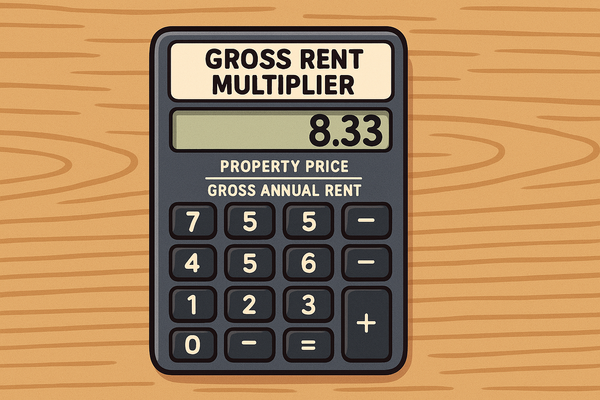North Carolina Squatters Rights Guide: Understanding Adverse Possession Laws
Adverse possession in North Carolina allows individuals to gain legal ownership of another's property through continuous occupation under specific conditions (including 20 years of continuous occupation)

From the "witch's cauldron" squatter who terrorized an east Charlotte neighborhood before a violent confrontation with police, to the Airbnb guests who refused to leave a Durham mother's rental home for months, North Carolina has seen its share of bizarre and alarming squatter cases.
These high-profile incidents highlight the critical importance of understanding the state's complex adverse possession laws and the challenges property owners face when unauthorized occupants claim residency rights.
With its unusually long 20-year statutory period and pending legislation that could dramatically change how quickly owners can remove squatters, North Carolina offers valuable lessons on protecting real estate investments from those seeking to exploit legal loopholes.
Introduction to Squatters' Rights in North Carolina
- Trespasser vs Squatter Definition: In North Carolina, squatters are unauthorized occupants who take possession of a property without legal right or permission, while trespassers are individuals who briefly enter property without authorization.
- Adverse possession in North Carolina allows individuals to gain legal ownership of another's property through continuous occupation under specific conditions (including 20 years of continuous occupation).
- North Carolina property owners must understand these laws to protect their real estate investments and prevent unauthorized claims.
- Historically, adverse possession laws in North Carolina were designed to encourage productive use of abandoned land and resolve boundary disputes.
Squatter Snippet: Real Case from North Carolina
In 2023, east Charlotte residents experienced one of North Carolina's most bizarre squatting cases when Ninti El-Bey, age 50, illegally occupied a suburban home. El-Bey terrorized the neighborhood with unusual behavior, including operating a "witch's cauldron" in the backyard and spraying oil on neighboring properties. Despite receiving an eviction notice in April 2022, she remained entrenched for over a year.
When authorities finally moved to remove her in July 2023, she barricaded herself inside, punched a police officer, and had to be pepper-sprayed before being arrested. Court records revealed this wasn't El-Bey's first offense—she had previously been convicted of squatting in Charlotte's upscale Piper Glen neighborhood in 2015.
Key Timeline: Statutory Period in North Carolina
- Required occupation period: 20 years standard period in North Carolina
- Reduced period with color of title: 7 years
- Continuous possession requirement: Occupation without significant gaps
- Comparison with neighboring states:
- South Carolina: 10 years
- Virginia: 15 years
- Tennessee: 7 years
- Timeline exceptions:
- Military service
- Incarceration
- Legal incompetence/disability
Adverse Possession Timeline Comparison
| State | Required Years | Special Conditions |
|---|---|---|
| North Carolina | 20 years (7 with color of title) | Known and visible boundaries required |
| South Carolina | 10 years | Payment of property taxes strengthens claim |
| Virginia | 15 years | Hostile possession must be proven |
| Tennessee | 7 years | Must have color of title |
Quick Guide for Property Owners
North Carolina property owners face significant challenges with squatters, as demonstrated by recent high-profile cases. In June 2024, Durham resident Farzana Rahman battled Airbnb guests who refused to leave her property after their rental period ended, even hanging a "No Trespassing" sign on her own door.
These guests-turned-squatters claimed they were "legal residents" and could only be removed through formal eviction proceedings. Understanding North Carolina's specific requirements is critical—particularly the lengthy 20-year adverse possession period, which is among the longest in the nation.
- Know your timeline: Squatters can claim rights after 20 years of continuous occupation (or 7 years with color of title)
- Documentation matters: Keep property records, tax receipts, and inspection logs
- Regular monitoring required: Vacant properties are most vulnerable, especially seasonal vacation homes along North Carolina's coast
- Legal obligation: Self-help eviction methods are illegal in North Carolina
- Act quickly: The longer squatters remain, the stronger their potential claim
- Proper notices: Follow legal procedures when removing unauthorized occupants
Prevention: Protecting Your Property
North Carolina property owners face unique challenges with squatters, especially in vacation areas along the coast where homes often stand empty for months. According to law enforcement officials, squatters frequently target these properties during winter months when seasonal owners are absent.
North Carolina courts give significant weight to evidence of regular property inspections and security measures when evaluating adverse possession claims. Most successful adverse possession claims in North Carolina involve properties where owners have failed to maintain visible presence or monitoring for extended periods.
- Regular inspections:
- Visit property at least quarterly
- Document each visit with photos/notes
- Consider hiring property management for out-of-state owners
- Effective security measures:
- Secure all entry points with quality locks
- Consider alarm systems connected to monitoring services
- Install motion-activated lighting and visible cameras
- Clear signage:
- Post "No Trespassing" signs visibly at property boundaries
- Mark property boundaries clearly to prevent boundary disputes
- Property management options:
- Hire professional management for vacant properties
- Consider short-term rental options for seasonal vacancies with proper screening
- Documentation practices:
- Keep property tax payment records current
- Maintain utility connections or monitor disconnected utilities
- Take dated photographs regularly of property condition
Property Risk Assessment Matrix
| Property Type | Risk Level | Recommended Prevention | Estimated Cost |
|---|---|---|---|
| Vacant Land | High | Regular inspections, clear boundary markers, posted signs | $500-1,000/year |
| Abandoned Building | Very High | Security system, regular patrols, board windows/doors | $1,000-3,000/year |
| Seasonal Vacation Property | High | Professional management, security system, neighbor alerts | $1,500-5,000/year |
| Investment Rental Property | Medium | Thorough tenant screening, regular inspections, clear lease terms | $500-2,000/year |
Removing Squatters: Step-by-Step Process
North Carolina's eviction process for squatters is governed by Chapter 42 of the North Carolina General Statutes, which treats unauthorized occupants similarly to holdover tenants.
Unlike some states with expedited processes, North Carolina currently requires property owners to follow standard eviction procedures regardless of the occupant's legal status. Self-help eviction methods are strictly prohibited under N.C.G.S. § 42-25.6, with violations potentially resulting in actual and punitive damages against the property owner. However, pending legislation (House Bill 984) could dramatically change this process, allowing for expedited removal within 48 hours.
- Document the situation:
- Take photos/video of occupation
- Gather ownership documents including deed and tax records
- Document any property damage or alterations
- Issue proper written notice to vacate
- Deliver formal notice according to North Carolina requirements
- Allow appropriate notice period to expire
- File appropriate legal complaint:
- File summary ejectment action in North Carolina District Court
- Include all required documentation proving ownership
- Pay required filing fees
- Attend court hearing
- Present evidence of ownership and unauthorized occupation
- Be prepared for potential defenses from squatters
- If successful, obtain writ of possession
- File for writ after mandatory 10-day appeal period
- Allow court to process paperwork (typically 3-5 days)
- Sheriff enforces removal, not property owner
- Schedule removal with sheriff's department
- Be present during enforcement with locksmith
- What NOT to do:
- Do not change locks yourself
- Do not shut off utilities
- Do not remove squatter's belongings
- Do not threaten or intimidate
- Do not use physical force
- Timeline expectations:
- Notice period: Variable based on situation
- Court processing: 2-4 weeks
- Appeal period: 10 days after judgment
- Writ processing: 3-5 days
- Eviction enforcement: Typically within 7 days of writ issuance
Eviction Process Timeline
The North Carolina eviction process is governed by the state's summary ejectment procedures under N.C.G.S. § 42-26 through § 42-36.3. According to the North Carolina Administrative Office of the Courts, the average eviction process takes approximately 30-45 days from initial filing to enforcement, though this can vary by county.
Small claims court proceedings for evictions must be scheduled within 7 days of filing according to statutory requirements, but court backlogs can extend this timeframe. Currently, there are no expedited options specific to squatters, though House Bill 984 would create a 48-hour removal process if passed.
[Discovery of Squatter] → [Documentation: 1-2 days] → [Notice to Vacate: 7-10 days] →
[Court Filing: 1 day] → [Waiting for Hearing: 7-14 days] → [Court Hearing: 1 day] →
[If successful, Wait for Appeal Period: 10 days] → [File for Writ: 1 day] →
[Writ Processing: 3-5 days] → [Sheriff Enforcement: 5-7 days] → [Property Returned]
Total estimated timeline: 35-50 days
Legal Requirements for Adverse Possession
North Carolina courts apply the "OCEAN" criteria (Open, Continuous, Exclusive, Adverse, Notorious) when evaluating adverse possession claims, but with specific interpretations established through state precedent.
In the landmark case Locklear v. Savage (1994), the North Carolina Supreme Court established that the burden of proof rests with the adverse possessor, who must establish all elements by "clear, strong and convincing evidence"—a higher standard than the typical civil case "preponderance of evidence" standard. The court also clarified that any ambiguity is resolved in favor of the legal title holder.
- Hostile/Adverse Claim
- North Carolina defines "hostile" as occupation without the legal owner's permission
- Does not require malicious intent or confrontation
- Any permission from the owner (verbal or written) defeats this element
- Actual Possession
- Physical occupation of the property required
- Evidence includes improvements, maintenance, or residential use
- Must utilize the property as a true owner would
- Open and Notorious Possession
- Possession must be visible to community and property owner
- Actions must be obvious enough to alert the true owner
- Cannot be hidden or secretive occupation
- Exclusive Possession
- Squatter must have sole control of the property
- Cannot share with the legal owner or general public
- Must act as the exclusive controller of the property
- Continuous Possession
- Requires uninterrupted possession for 20 years (7 with color of title)
- Brief absences like vacations permitted
- Seasonal use may be insufficient
Adverse Possession Requirements Matrix
| Requirement | Required in North Carolina? | Evidence Courts Accept | Common Pitfalls |
|---|---|---|---|
| Hostile Claim | Yes | No permission from owner, acting as owner | Having any written or verbal permission |
| Actual Possession | Yes | Living on property, maintaining buildings, improvements | Irregular or minimal use of property |
| Open & Notorious | Yes | Visible occupation, community awareness | Hidden or concealed occupation |
| Exclusive | Yes | Sole control, exclusion of others | Sharing property with others |
| Continuous | Yes | Uninterrupted 20-year occupancy (7 with color of title) | Significant gaps in occupation |
Frequently Asked Questions
- "Can I remove squatters myself?"
- No, self-help eviction is illegal in North Carolina
- Must follow legal eviction process through courts
- "Do squatters have to pay property taxes?"
- Tax payment isn't explicitly required in North Carolina
- However, payment strengthens an adverse possession claim
- "What's the difference between a squatter and a trespasser?"
- Trespassers: Short-term unauthorized presence without intent to claim property
- Squatters: Ongoing occupation with potential adverse possession claim
- "Who should I contact first - police or sheriff?"
- For immediate safety concerns or recent entry: Police
- For eviction enforcement after court order: Sheriff
- "Can squatters claim abandoned property?"
- Yes, if all adverse possession requirements are met for 20 years
- Abandonment may actually strengthen their claim
- "How quickly can I evict a squatter?"
- Current typical timeline: 35-50 days
- Factors affecting timeline: court schedule, appeals, evidence quality
- Pending legislation could reduce this to 48 hours
Decision Tree for Property Owners
North Carolina law distinguishes between criminal trespass (N.C.G.S. § 14-159.12) and civil squatting situations. Under current state law, law enforcement can only remove individuals for criminal trespass if they've been on the property for less than 24 hours.
Once an individual establishes any form of residency, even illegitimately, the matter becomes a civil issue requiring judicial eviction. This creates a critical decision point for property owners who discover unauthorized occupants—immediate action is essential before occupants can claim any form of established residence.
Discovered Someone on Your Property
├── Emergency/Dangerous Situation? → Yes → Call Police (911)
│ └── No ↓
├── Recent Entry (Less than 24 hours)? → Yes → Call Police (Criminal Trespass)
│ └── No ↓
├── Evidence of Established Occupation? → Yes → Legal Eviction Process Required
│ └── No ↓
└── Uncertain Situation → Consult Attorney Before Taking Action
Recent Legislative Changes in North Carolina
North Carolina is currently considering significant changes to squatter removal laws through House Bill 984, sponsored by Rep. John Bradford (R-Mecklenburg County). This bill, which passed the House Judiciary Committee on June 5, 2024, would create an expedited process for removing squatters within 48 hours of a complaint to law enforcement.
The legislation represents a major shift from current requirements that treat squatters similar to tenants requiring full eviction proceedings. The bill was motivated by high-profile cases including the "witch's cauldron" squatter case in Charlotte and multiple instances of Airbnb guests refusing to leave after their rental periods ended.
- Recently Passed Laws:
- None directly affecting squatter rights in the past year
- Pending Legislation:
- House Bill 984: Currently in legislative process
- Proposed changes: Allows property owners to have unauthorized occupants removed within 48 hours
- Expected implementation: Pending final passage, possibly effective late 2024
- Legislative Trends:
State-Specific Considerations
- Color of Title in North Carolina:
- Definition: Written document that appears to transfer ownership but is legally deficient
- Impact on statutory period: Reduces required time from 20 years to 7 years
- Documentation requirements: Must be written instrument with description of property
- Burden of proof requirements:
- Squatter must prove all elements of adverse possession by "clear, strong and convincing evidence"
- Higher standard than typical civil cases
- Recent legal developments:
- House Bill 984 proposing 48-hour removal process
- Growing court recognition of fraudulent documentation by sovereign citizen squatters
- How North Carolina differs from neighboring states:
- Longer standard statutory period (20 years) than neighboring states
- No explicit requirement for property tax payment
- Color of title reduction more significant than neighboring states
North Carolina vs. Neighboring States Comparison
| Factor | North Carolina | South Carolina | Virginia | Tennessee |
|---|---|---|---|---|
| Statutory Period | 20 years | 10 years | 15 years | 7 years |
| Color of Title Impact | Reduces to 7 years | Reduces to 10 years | No impact | Required for 7-year claim |
| Tax Payment Required | No | Yes | No | Yes |
| Special Conditions | Known boundaries required | Requires improvements | Must be hostile | Must have color of title |
| Strictness Rating | 3.5/5 | 3/5 | 3/5 | 4/5 |
Advanced Legal Process
- Court proceedings typically occur in District Court as summary ejectment actions
- Evidence requirements include proof of ownership and unauthorized occupation
- Potential outcomes include judgment for plaintiff, dismissal, or appeal
- Monetary judgments may be awarded for property damage or lost rental income
- Impact on property title requires resolution before property can be sold
- Special provisions apply for legally incompetent property owners, pausing the statutory period
Real-World Examples
- Ninti El-Bey Case (2023): Squatter claimed religious exemption, created a "witch's cauldron," and threatened neighbors in Charlotte before violent confrontation with police
- Farzana Rahman Case (2024): Airbnb guests refused to leave Durham property after rental period, claiming tenant rights and forcing owner through lengthy eviction process
- Davidson Home Squatters (2023): Two individuals faced felony charges after fraudulently claiming ownership of a vacant home valued at over $600,000
- Multiple Coastal Vacation Home Cases: Seasonal properties along North Carolina's coast increasingly targeted by squatters during off-season months
Resources
- Current North Carolina Squatters Rights Laws:
- North Carolina General Statutes § 1-40
- Last updated: 2023
- Recent/Pending Legislation:
- House Bill 984
- Bill status: In legislative process
Legal Disclaimer
DISCLAIMER: The information provided in this guide is for general informational purposes only and should not be construed as legal advice on any subject matter. The content contained herein does not establish an attorney-client relationship.
This guide about North Carolina squatters' rights and adverse possession laws is intended to provide general information and should not be relied upon as legal advice. Laws and regulations regarding property rights, adverse possession, and eviction procedures vary by jurisdiction and may change over time. The information presented here may not reflect the most current legal developments or address your specific situation.
No reader should act or refrain from acting based on information in this guide without first seeking professional legal advice. Property owners dealing with squatters should consult with a qualified attorney licensed to practice in North Carolina for advice tailored to their particular circumstances.
The authors, publishers, and distributors of this guide expressly disclaim all liability in respect to actions taken or not taken based on any or all of the contents of this document. They shall not be responsible for any errors or omissions in this information or any consequences arising from its use.
This guide is provided "as is" without warranty of any kind, either express or implied, including but not limited to implied warranties of merchantability, fitness for a particular purpose, or non-infringement.
Copyright © 2025 LandlordDoc.com. All rights reserved.





